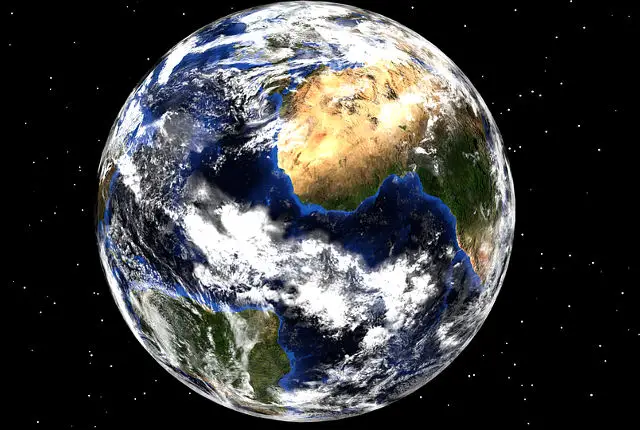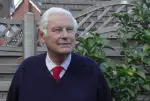Jonathan Dodd’s latest column. Guest opinion articles do not necessarily reflect the views of the publication. Ed
Eco-Philosophy is, on the face of it, a curious thing. It’s an idea, or, rather, a way of thinking about things. I was entirely ignorant of the existence of such a subject, until I went to the last of this season’s Café Scientifique meetings in Shanklin, about Eco-Philosophy, given by Tanja Rebel. The only thoughts I had before the meeting went like this: Here’s a word made up of two parts, the first of which is ‘Eco’, which refers to environments, and the second is ‘Philosophy’, which means thinking about things.
But I also had the thought that both of these can be interpreted or understood or used in a least two ways. ‘Eco’ could be used simply to represent the actual study of environments, how they work, how they evolved, and how they would be expected to behave in certain circumstances. But it can also be used in a very different way, as a symbol of resistance to changes in the environment, usually bad changes, and thus it becomes a rallying cry or a term of insult, as in ‘Eco-warrior’, or ’Eco-protester’, and used in probably untrue or unverified ways in advertising, as in ‘Eco-friendly’.
It has never been a popular subject
Philosophy is also one of those slippery words. It really involves thinking about anything or everything, and its origins come from Greek, meaning ‘love of wisdom’. But it’s also used in other ways, as in ‘My Personal Philosophy’, and that can be used to add spurious weight to frankly dodgy beliefs and attempts towards social engineering, or worse. Nowadays, Philosophy usually has a reputation as one of those things that put you to sleep, and is seen as boring, hard to understand, and completely irrelevant. People generally think this lack of interest is all because of ‘dumbing down’, but it has never been a popular subject, and most people have never had any exposure to philosophy itself, so they haven’t had the opportunity to think about it.
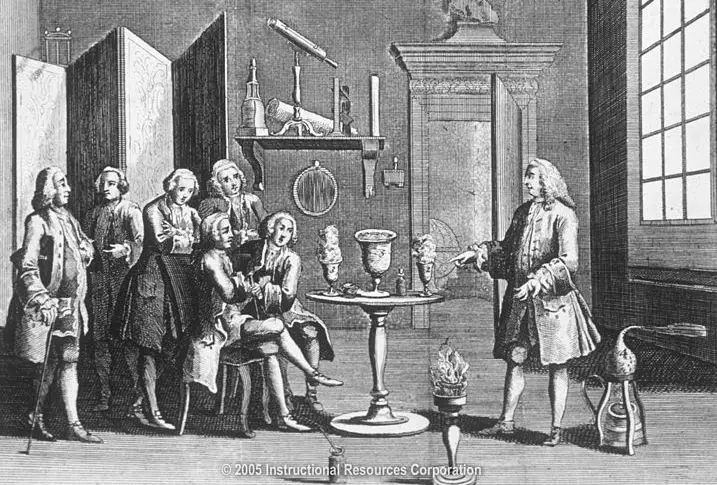
Luckily, the good people who turn up to Café Scientifique are made of sterner stuff, and like to be challenged by a good speaker who is passionate about his or her subject. To my mind, who on earth wouldn’t be? But I was always in the minority. Tanja Rebel gave a spirited talk, concentrating on why Philosophy is important, and how it has actually formed and changed our collective attitudes and beliefs, even though most of us are unaware or those changes. I shall try to make some sort of representation of her major points here, and I’ll apologise in advance for the things I’ll get wrong. It’s a field I now know a little about. The difference between knowing nothing and knowing a little is huge, and I think a little knowledge is usually far more dangerous than complete ignorance.
Dominion over everything in the world
She started with Socrates, back when Greece was the cradle of thought. He was tremendously influential, and his central idea was that Mankind was the centre of everything. He believed that everything had a purpose, which was obviously his interpretation of what that purpose was, and as far as he was concerned, the purpose of Nature was basically to feed and clothe him. In other words, Mankind ruled the world, and was free to use anything he found in the world as he wished.
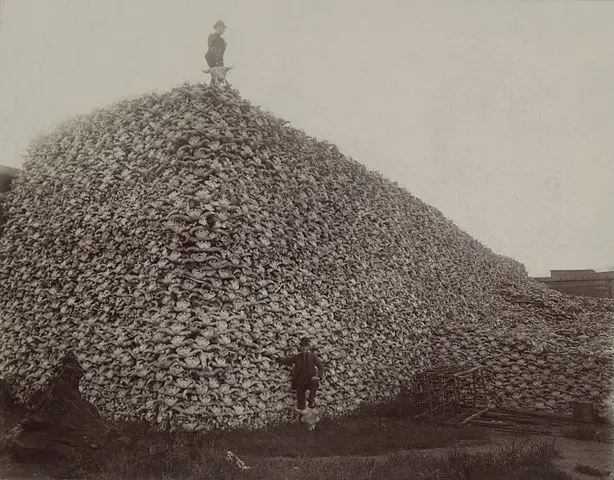
There didn’t seem to be much in the way of opposition to this, and there was plenty of everything to go round, so the idea stuck. Later, the rise of the Western religions and the concept of a single god changed the idea somewhat. It says in the Bible, for instance, that God gave Man dominion over everything in the world, to do with as he pleased. Go forth and multiply. And Mankind did exactly that.
Permission and righteousness
The next obvious step in this progression involved permission and righteousness. If there’s only one god, and you worship him, then anyone else who worships any other god or gods is wrong, so it becomes your duty to convert them to your own true religion. So Man may be top of the tree, but there’s now a new structure within Mankind, and those true believers are superior to anyone who isn’t, and they have been commanded to go out and convert those ignorant savages, or wrong-headed truth-deniers. Once you develop the ability to travel and explore, you can use this permission to take over any lands you discover and subjugate any people you find there. Conveniently, this also makes you rich, and proves the validity of your attitudes.
![]()
All of this went pretty much unchallenged until the Seventeenth Century, when Philosophers started to reposition Mankind in the Universe, much as Astronomers had changed our ideas of the world, no longer being the centre of the universe, but just a planet circling the Sun. They started thinking about each person, and where he or she might stand in relation to everything else. Philosophy became internalised. Descartes came up with the immortal idea – “I think, therefore I am”. This changed the emphasis to making up your own mind where you come from and what you should be doing. The grip of the Church and its insistence of the truth of the Bible started to diminish.
We’re all made up of the same stuff
But the trouble we were inflicting on the planet and other life-forms on it was unaffected by this. Descartes believed that animals didn’t have souls, so they were like anything else, just there, and available for us to use and exploit without needing to worry. Animals, for instance, couldn’t feel pain, because they had no soul, and they were meant to be used by people. Very few thinkers by this time had considered other species in any other way, or they hadn’t become popular.
![]()
Tanja Rebel mentioned Saint Francis, who put forward the idea that we were really asked by God to look after the world, rather than just use it as we wished, as if we were stewards rather than children in a playground. Around the same time, Spinoza was beginning to argue that there might be a god, but one who had no active involvement in the world, and that everything in the world, including people, was all made up of the same stuff, and therefore related to everything else. But these ideas took longer to become mainstream.
The huge increase in the human population
The growth of science and the spread of knowledge and education gave us the opportunity to realise that it’s possible to destroy or affect the environment around us, and that the huge increase in the human population was having a measurable effect on other species. With that understanding, the idea of responsibility began to take a greater hold over us. Discovering the Dodo was a fascinating thing, but killing and eating every Dodo immediately, just because we could, began to seem wrong, and the idea of our responsibility for our activities started to take hold.
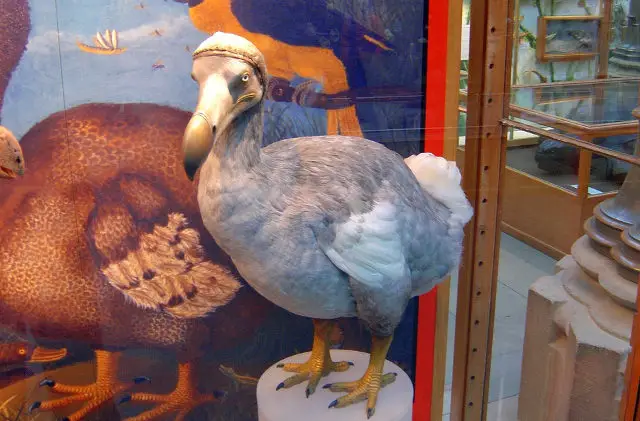
This thinking was starting to lead to a better way of exploiting the world’s resources, but it took more years and more thinkers to make us consider other species as our relations rather than dumb animals. Research showed how closely-related we are to Apes. All sorts of species could be studied and their intelligence and behaviour analysed. We started to appreciate the variety and unique abilities of other creatures. The Theory of Evolution showed that we’re all the product of a continuous process, and not necessarily the unchanging pinnacle of a fixed hierarchy.
Our planet is a closed ecosystem
Recent thinkers have put forward the idea that our planet is a closed ecosystem, in which everything, whether living or not, is related to, and influenced by, everything else. The World is Gaia, we are part of it, and we’ve become troublesome to it. At some point we might alter things so much that the reaction could cause us trouble. We’re already seeing this in our observations of climate change, and we can see our effect on the environment. We may want to ignore the warnings, but they are there nonetheless.
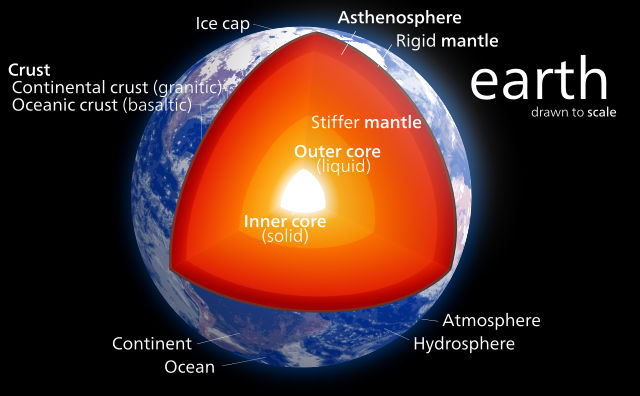
This is the heart of Eco-Philosophy, as I understand it in my limited and ignorant way. We now know that we’re a clever species that has learned how to multiply and prolong our lives, and we’ve been conquering Nature for so long because we believed we had a God-given right to do so, with impunity. We also now know that we’ve actually been abusing our own environment, and we’re seeing the results in the loss of species and the scarcity of resources. We face an uncertain future, which we could make worse, and we have to take responsibility for our actions. We have to try to clean up our act and attempt to reverse the worst of the changes we have made so far, or we have to accept our own responsibility for the possible catastrophes that could overtake us if we do nothing.
Perhaps we’re finally growing up as a species
The world doesn’t need us, but we need the world. If we didn’t exist, the world would still be there. If we go so far that we wipe ourselves out, the world would continue. It would be different to how it is now, but we’re only a microsecond in its existence, a passing fever that raged briefly on its surface. It’s up to us. Perhaps we’re finally growing up as a species. We’re rather like spoilt children, who have been able to run wild in the absence of supervision.
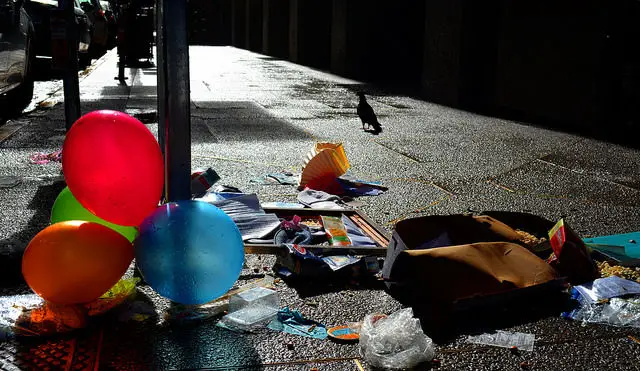
There never was going to be any supervision. We invented divine parents who gave us permission to do what we wanted. It’s the morning after the party. We’re waking up and seeing the damage, and we know it’s up to us either to ignore it and carry on, or try to tidy the place up. We’re still in denial, and we’re lazy, but our eyes are now open. There are no magic wands. It’s up to us. We need to do some thinking, and become wiser than we have been so far.
Thank you Tanja for a very interesting evening.
If you have been, thank you for reading this.
Image: Pixabay under CC BY 2.0
Image: Public Domain
Image: Public Domain under CC BY 2.0
Image: max pixel under CC BY 2.0
Image: maxpixel under CC BY 2.0
Image: pixabay under CC BY 2.0
Image: Kelvinsong under CC BY 2.0
Image: sonstroem under CC BY 2.0

